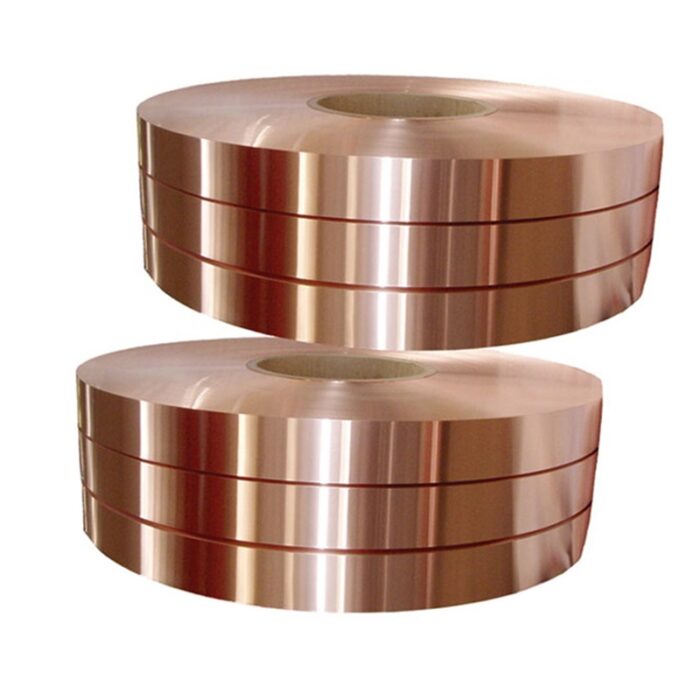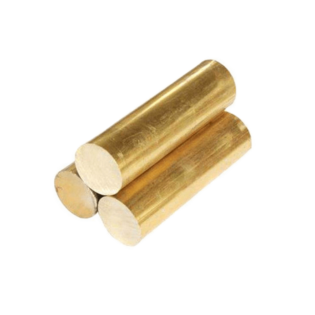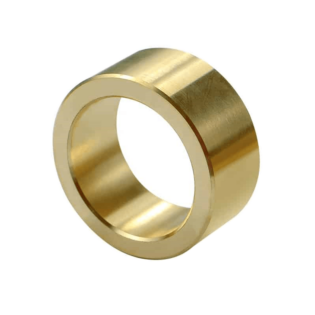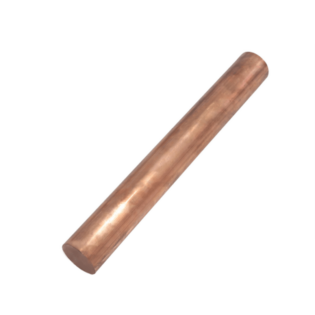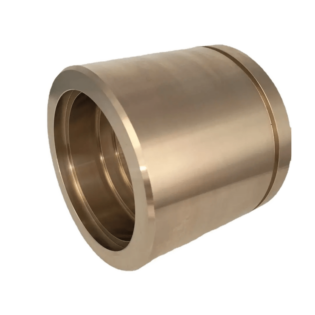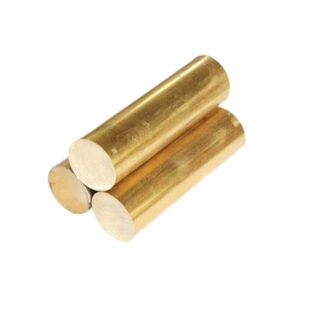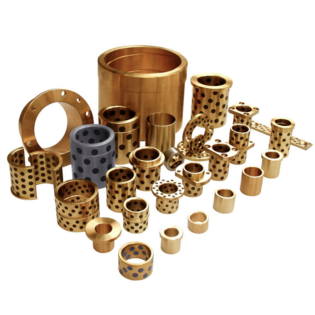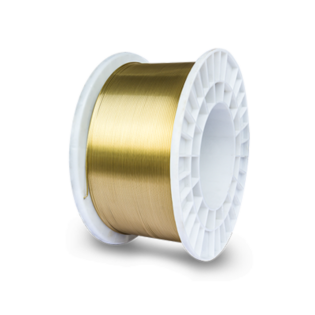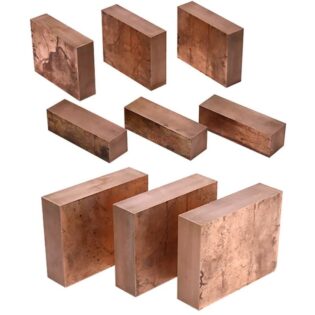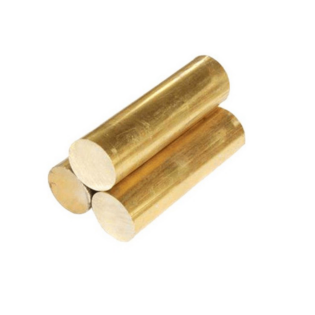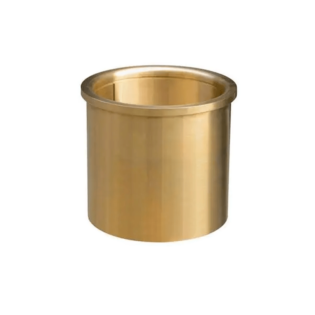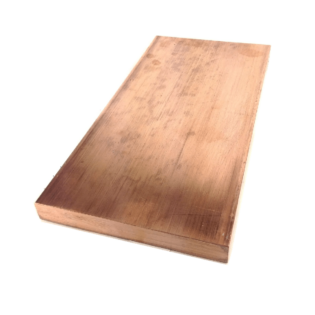Qsn8-0.3 Description
Qsn8-0.3 tin bronze is bronze with tin as the main alloying element. Tin content in general between 3 ~ 14%, mainly used for making elastic components and wear-resistant parts.
Chemical Component
Sn:7.0-9.0
P:0.03-0.35
Zn:≤0.20
Ni:≤0.20
Fe:≤0.01
Pb:≤0.05
Cu:Remain
Mechanical Properties
Tensile strength σ B (MPa) : ≥350
Elongation δ10 (%) : ≥55
Note: Longitudinal tensile mechanical properties of bar at room temperature
Sample size: diameter or opposite side distance 40 ~ 120
Qsn8-0.3 tin bronze is bronze with tin as the main alloying element. Tin content in general between 3 ~ 14%, mainly used for making elastic components and wear-resistant parts.
| |
Lion standard | QSn8-0.3 |
QSn8-0.3 | |
American standard | C52100 |
Japanese standard | C5210 |
Chemical composition (weight percent) | |
Sn | 7.0-9.0 |
P | 0.03-0.35 |
With | margin |
Sum of impurities | ≤ 0.5 |
Physical properties (room temperature) | ||
Conductivity | ≥ 12 | %IACS |
Conductivity | ≥ 6.96 | MS/m |
Thermal conductivity | 62 | W/(m.K) |
Thermal expansion coefficient | 18.2 | 10 -6 / K |
Density | 8.8 | g/cm3 |
Elastic Modulus | 110 | GPa |
Specific heat capacity | 380 | J/(g.K) |
Poisson’s ratio | 0.33 | — |
Process performance | |
Cold workability | Excellent |
Machinability | Generally |
Electroplating | Good |
Hot-dip tinning | Good |
Solderability | Excellent |
Resistance welding | Good |
Typical use
Mechanical behavior | ||||
State | Tensile Strength ( MPa ) | Elongation ( A 11.3 , % ) | Vickers hardness | |
M | O60 | ≥ 345 | ≥ 45 | ≤ 120 |
Y 4 | H01 | 390-510 | ≥ 40 | 100-160 |
Y 2 | H02 | 490-610 | ≥ 30 | 150-205 |
AND | H04 | 590-705 | ≥ 12 | 180-235 |
T | H06 | 680-740 | ≥ 5 | 200-250 |
TY | H08 | 735-833 | ≥ 2 | 230-270 |
Mainly used in the manufacture of elastic components, wear-resistant parts and anti-magnetic parts in precision instruments, such as spring contact pieces or other springs with good electrical conductivity; various altimeters in the aviation industry, springs for lifting speedometers, connecting rods, etc. , Gears, brush boxes, contactors, etc. in precision instruments.
Thickness tolerance | ||||||
Thickness ( mm ) | 0.08-0.15 | >0.15-0.20 | >0.2-0.3 | >0.3-0.4 | >0.4-0.6 | >0.6-0.8 |
Tolerance ( mm ) | ± 0.0025 | ± 0.004 | ± 0.005 | ± 0.0075 | ± 0.01 | ± 0.0125 |
Thickness ( mm ) | >0.8-1.2 | >1.2-1.5 | >1.5-2.0 | >2.0-2.6 | >2.6-3.0 | >3.0-4.0 |
Tolerance ( mm ) | ± 0.015 | ± 0.02 | ± 0.025 | ± 0.03 | ± 0.04 | ± 0.05 |
Width tolerance | ||||||
Thickness ( mm ) | 0.08-0.5 | >0.5-1.0 | >1.0-1.8 | >1.8-3.0 | >3.0-4.0 | |
Width and Tolerance (mm) | 5-50 | ± 0.05 | ± 0.08 | ± 0.1 | ± 0.2 | ± 0.3 |
>50-100 | ± 0.075 | ± 0.1 | ± 0.15 | ± 0.2 | ± 0.3 | |
>100 | ± 0.1 | ± 0.15 | ± 0.2 | ± 0.3 | ± 0.5 |
Glitch | |
Thickness ( mm ) | Edge Burr ( mm ), no greater than |
≤ 0.50 | 0.02 |
>0.50-1.0 | 0.04 |
>1.0-2.0 | 0.05 |
>2.0-4.0 | 0.1 |
Bending performance | ||||
Condition | Minimum Bend Inside Radius ( mm ) | |||
Thickness /t : 0.15-0.30mm | Thickness /t : 0.30-1.0mm | |||
Good direction | Bad direction | Good direction | bad direction | |
O60 | 0 × t | 0 × t | 0 × t | 0 × t |
H01 | 0 × t | 0 × t | 0 × t | 0 × t |
H02 | 0 × t | 0 × t | 0 × t | 0 × t |
H04 | 0 × t | 1.0 × t | 1.0 × t | 2.0 × t |
H06 | 1.5 × t | 4.0 × t | 2.0 × t | 5.0 × t |
H08 | – | – | – | – |
Surface roughness | |
Ra (μ m ) | ≤ 0.3 |
Side curvature h ( mm/m ) | |||
| Width ( mm ) | Thickness ( mm ) | ||
0.08-0.6 | >0.6-2.0 | 2.0-4.0 | |
≤ 9 | ≤ 1.0 | ≤ 1.0 | — |
>9-13 | ≤ 1.0 | ≤ 1.0 | — |
>13-25 | ≤ 1.0 | ≤ 1.0 | — |
>25-50 | ≤ 1.5 | ≤ 1.0 | — |
>50-100 | ≤ 1.5 | ≤ 1.5 | — |
>100-625 | ≤ 1.5 | ≤ 1.5 | — |
Lateral curvature | |||
Width L ( mm ) | ≤ 50 | >50-200 | >200-625 |
Transverse curvature h ( mm ), not more than | 0.01 × L | 0.015 × L | 0.02 × L |
Longitudinal flatness (serpentine) | ||
Width ( mm ) | ≤ 100 | >100-625 |
Longitudinal straightness h ( mm/m ) | ≤ 3 | ≤ 5 |
Twist | |||
Width ( mm ) | ≤ 30 | >30-100 | >100-625 |
Torsion (°) | ≤ 10 | ≤ 5 | — |
Warpage | |||
Width ( mm ) | ≤ 100 | >100-300 | >300-625 |
Warpage h ( mm/m ) | ≤ 50 | ≤ 100 | — |

